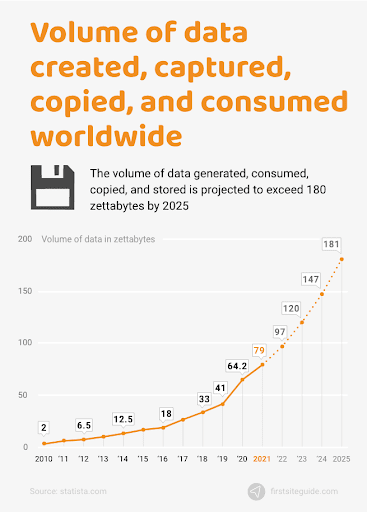Big Data Analytics has revolutionized the Retail Industry in recent years. It is now possible to collect and analyze large amounts of data to gain insights into consumer preferences, spending habits, and market trends. Big Data Analytics can help retailers understand customer behavior, optimize operations, target promotions effectively, and drive innovation in product design. By leveraging Big Data Analytics tools, retailers can gain a competitive edge by providing customers with personalized experiences that are tailored to their individual needs. This introduction will discuss how Big Data Analytics is transforming the Retail Industry through improved visibility into customer shopping habits and trends.

Overview of Big Data Analytics in the Retail Industry
Big data analytics retail industry has revolutionized the retail industry, giving businesses valuable insights into customer behavior and preferences that allow them to be more strategic in their decision making. By taking advantage of the vast amounts of data that retailers collect on a daily basis, businesses can now make decisions based on real-time analysis of customer trends and purchase behaviors.
The ability to collect, analyze and interpret large volumes of data quickly is essential in today's retail environment. Big data analytics software helps retailers gain a comprehensive understanding of their customers by analyzing customer purchase histories, browsing habits and loyalty program engagement. This allows businesses to personalize their marketing efforts as well as identify potential opportunities for growth or expansion.
In addition, big data analytics can provide valuable insights into inventory management by identifying areas where stock levels could be improved or adjusted accordingly. By monitoring customer buying patterns over time, retailers can better predict when certain items are likely to sell out or become popular. This information helps them ensure they have enough products on hand at all times while also avoiding overstocking items that may not be selling well.
Big data analytics also provides an opportunity for retailers to improve the overall shopping experience for customers by offering personalized product recommendations based on past purchases and browsing history.
Benefits of Big Data Analytics for Retailers
Big data analytics is revolutionizing the retail industry, providing retailers with unprecedented insights into customer behavior and preferences. By leveraging the power of big data analytics, retailers can gain a competitive advantage in a highly competitive market. Here are some of the key benefits that big data analytics can provide to retailers:
- Improved Customer Insights: Big data analytics allows retailers to gain deeper insights into their customers' buying habits and preferences. This enables them to tailor their products and services more effectively, as well as better target promotions and discounts for maximum impact. By understanding what motivates customers to buy, companies can increase sales by providing products and services that meet these needs more effectively than competitors.
- Enhanced Inventory Management: Big data analytics also helps improve inventory management by giving an accurate picture of current stock levels across all locations in real-time. This reduces wastage due to overstocking or understocking particular items at certain outlets, resulting in increased profits for the retailer. Additionally, it helps ensure that any seasonal or promotional items are readily available when needed so customers don't have to wait for restocking or miss out on special offers altogether due to lack of availability at certain outlets.
Challenges Posed by Big Data Analytics in the Retail Industry
The retail industry has been heavily relying on the use of big data analytics in order to gain a competitive advantage over its rivals. Big data analytics is the process of collecting, analyzing, and interpreting large volumes of customer information to uncover patterns, trends, and insights. It allows retailers to better understand consumers buying habits and preferences in order to better target their marketing efforts and optimize their operations for maximum efficiency.
However, there are several challenges posed by big data analytics in the retail industry that must be addressed if it is to be successful. One major challenge is that it requires a large amount of data which can be difficult for retailers to gather. Many retailers have limited resources when it comes to collecting customer information such as purchase history or demographic information which can limit the accuracy of insights generated from big data analysis.
Additionally, many retailers lack the necessary technology or expertise needed for effective analysis which can lead to inaccurate results or missed opportunities that would otherwise have been identified if proper analysis had been performed. Another issue with using big data analytics in retail is privacy concerns surrounding consumer information being collected by companies without consent or knowledge from customers themselves.
Strategies for Overcoming Challenges with Big Data Analytics in the Retail Industry
Big Data Analytics can be a valuable tool for retailers, providing insights into customer behavior, product trends and much more. However, many companies struggle to make the most of their data due to the challenges that come with it. In order to gain the full benefits of Big Data Analytics in the retail industry, companies need to be aware of these challenges and develop strategies to overcome them.
The first challenge is collecting and organizing large amounts of data from multiple sources. Retailers must be able to collect data from all their different channels – online stores, brick-and-mortar stores, mobile apps etc. – in order to gain an accurate picture of their customers' behaviors. This requires a centralized system that can store and organize all this information for analysis. Investing in an enterprise-level platform can help ensure that data is collected reliably and securely across different sources.
The second challenge is selecting which type of analytics best suits your particular business needs. Retailers must decide between predictive analytics or descriptive analytics depending on what they're trying to achieve with their data analysis efforts; predictive analytics focuses on predicting future outcomes while descriptive analytics looks at past trends and behaviors in order to inform decisions about present operations or marketing campaigns.

Conclusion
In conclusion, big data analytics is revolutionizing the retail industry by providing retailers with valuable insights into consumer behavior and interests. With the help of big data analytics, retailers are able to make informed decisions about pricing, inventory management, marketing campaigns and more. Additionally, big data analytics can also help to improve customer experience and satisfaction by allowing retailers to customize their offerings in order to better meet customer needs. As technology continues to evolve and become more advanced, it is likely that big data analytics will continue to play an increasingly important role in the retail industry for years to come.
Interesting Related Article: "How Big Data is transforming lives in 2023?"
No comments:
Post a Comment